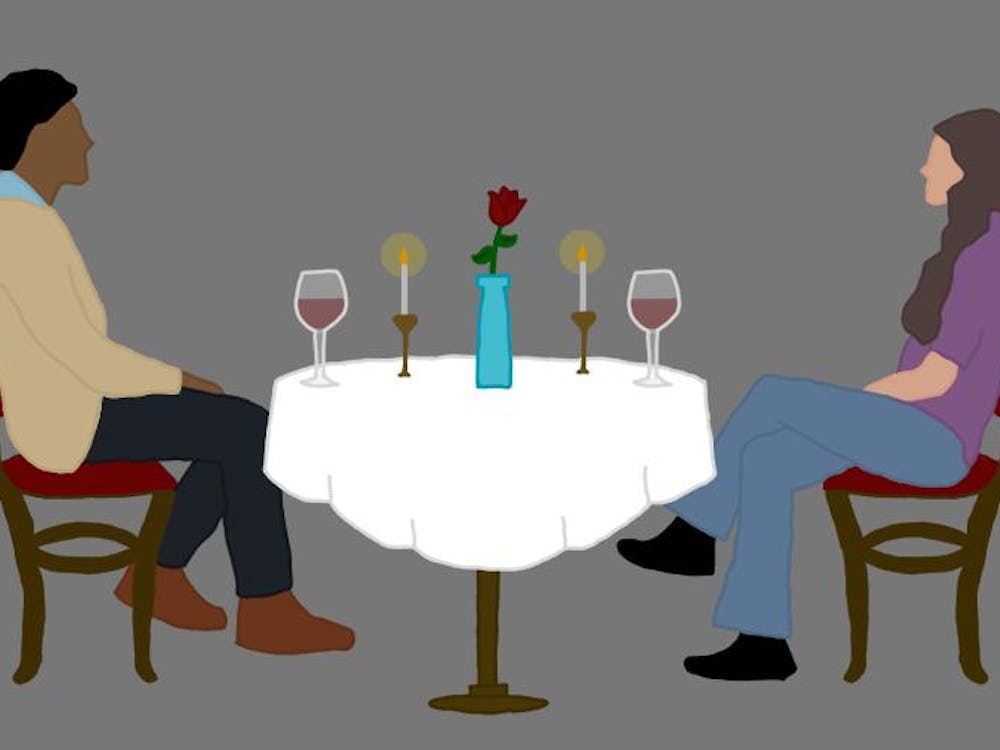From Baha'i to Branch Davidians, Oneida to Osho, Scientology to Snake Handlers, just about everything one needs to know about over 200 emerging and non-mainstream religions can be found in one place on the Web: www.religiousmovements.org.
The site originated in 1996 as an optional project for University Prof. Jeffery Hadden's Sociology of Religious Movements class, but has come a long way since then.
It has "evolved from a simple page designed to service the learning needs of my students at the University of Virginia to a resource that is accessed from all over the world," Hadden said.
Since the site was revamped last May, it has received an average of over one million hits per month, a staggering statistic considering the University homepage received only about half that amount, averaging 681,549 hits per month last year.
Though the page was originally student-oriented, over 95 percent of accesses now comes from outside the University community. The site has even attracted a global following, as Web surfers from over 85 countries have accessed the site, averaging 15 to 20 foreign hits per day.
The page's content is straightforward and, most importantly, unbiased. The Web page's welcome and mission statement declares, "This site seeks to promote tolerance and appreciation of all religions without preference for any particular faith tradition."
Hadden said this idea of impartial information is extremely important, particularly when he reflects on the Web's earlier days.
"In its infancy, the World Wide Web was a virtual war zone for many new religious movements," he said. "It didn't take me long to realize that the war zone was not a level playing field."
Consequently, the page includes a profile with straightforward facts, including religious founders, dates of formation, places of origin, sacred texts, congregation sizes, beliefs, history, practices and religious issues that have sparked controversy.
Below these facts, links are provided to related Web sites. Concluding each religion's page is a list of print and electronic references that viewers can refer to for further information.
The Web page originated in 1996 with a list of 25 religious groups chosen by Hadden. Students had the option of creating a page as a term project, but after receiving positive feedback from his students, Hadden said he realized that making the assignment a requirement held certain advantages.
It would be an opportunity to organize a wealth of materials to enrich the learning of both current and future students. He also realized that it would be a positive challenge for his students.
Creating a page would "expose [students] to situations where they know that they have to be able to discern the difference between facts, half-truths and irresponsible lies [and] discern the difference between a carefully documented argument and an opinion," he said.
Finally, Hadden, a self-proclaimed "recovering technophobe," said he wanted his students to learn the invaluable lessons of Web page construction and searching the Internet.
After weighing the benefits, Hadden recruited then second-year College student Craig Hirsh to create the Web page for the class. Hirsh signed on as technology instructor for the following semester and, upon his graduation last May, was given the title of Webmaster Emeritus.
Fourth-year College student Jackie Fowler helped develop the site, and she recalls that the project gave her a good opportunity to work with the latest technology.
On average, between both the research and technological aspects of the task, she said she spent about six hours a week throughout the semester working on various Japanese religious movements to add to the site.
Even now, Fowler said she receives e-mail feedback and responses about the site.
Although the Internet is still a haven for countless numbers of anti-cult groups, Hadden said he is surprised to note that the level of passionately negative mail his site generates is not nearly as much as he would have guessed.
One reason for this could be the site's mission statement, in which Hadden explicitly states that he is not interested in discussing his page with individuals who are hostile to various religious groups.
"I am aware that some people hold passionately negative convictions about one or many religious groups, but I have no interest in engaging in dialogue or debate with them," he said.
He added that the majority of the responses he receives are constructive and positive.
"I keep getting really nice notes. It's wonderful to get those kinds of comments," Hadden said.
In addition to receiving letters expressing personal beliefs, he specifically asks that readers respond to any incorrect information about any religious group included in the site. He also asks readers to respond to any excluded bibliographical works, Web sites and dead links.
Hadden said the page is "a work in progress," both technologically and substantively, as religious groups constantly "emerge, grow, stagnate, reinvigorate themselves and sometimes die."
Hadden is on sabbatical for the fall term, but Sociology 257 will be back for the new millennium. In the meantime, Hadden faces the daunting task of maintaining and updating the page without the aid of his students.
Hadden also has created religious freedom and religious broadcasting sites, although he notes that they are much less developed in comparison to the religious movements page. Hadden said he has plans to eventually expand the site's pages. To compliment information on the broadcasting page, he said he plans to add multimedia devices such as video clips.
For now, however, Hadden said his chief efforts are focused on documenting some of the thousands of religions and quasi-religions that exist throughout the world.
Hadden said countless numbers of religions have emerged throughout the years only to fade into oblivion. He said he recognizes, however, that there is merit in studying these emerging religions, so students are able to learn about the world's major religions that have survived throughout the years.
"Since new religions continually are being formed, we can learn a great deal about the creation, growth and development of religions by observing the formation of new traditions," he said.






